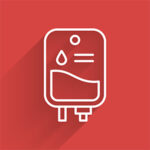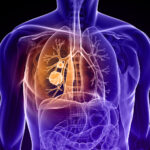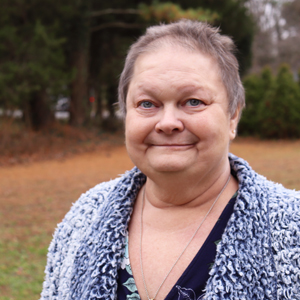-
April 8: The Week in Cancer News
CAR T-cell therapy approved for relapsed large B-cell lymphoma, and screening catches lung cancer earlier, although disparities persist.
by Kevin McLaughlin
-
April 1: The Week in Cancer News
Chemo brain may provide clues for long-haul COVID-19, and researchers analyze relationship between obesity and cancer.
by Marci A. Landsmann
-
March 25: The Week in Cancer News
FDA approves combination immunotherapy for treating melanoma, and screening tool improves pancreatic cancer detection.
by Kevin McLaughlin
-
March 18: The Week in Cancer News
Metastatic prostate cancer incidence rose after recommendation against routine screening, and FDA approves first PARP inhibitor for early-stage breast cancer for people with inherited BRCA mutations.
by Eric Fitzsimmons
-
March 11: The Week in Cancer News
FDA approves neoadjuvant immunotherapy treatment for lung cancer, and radiation might not be needed for low-risk thyroid cancer.
by Kevin McLaughlin
-
March 4: The Week in Cancer News
Study finds lower rates of screening-related breast cancer overdiagnosis and children with cancer in Ukraine continue treatment in hospital’s basement.
by Marci A. Landsmann
-
February 25: The Week in Cancer News
Screening program reduces disparities in colorectal cancer, and seeing the challenges of getting cancer care through one woman’s story.
by Eric Fitzsimmons
-
February 18: The Week in Cancer News
Aspirin is ineffective in preventing breast cancer recurrence, and immunotherapy holds promise for some patients with advanced anal cancer.
by Kevin McLaughlin
-
How COVID-19 Changed Cancer Care
A new report from the American Association for Cancer Research explores how the COVID-19 pandemic affected cancer patients, researchers and care providers.
by Eric Fitzsimmons
-
February 11: The Week in Cancer News
Millions miss cancer screenings, and commercial tobacco ban goes into effect for Navajo Nation after years of failed attempts.
by Marci A. Landsmann
Cancer Talk
Treatment Combination Improves Survival in EGFR-positive Lung Cancer
Adding chemotherapy to targeted therapy improves outcomes for people with advanced EGFR-positive non-small cell lung cancer.
by Sandra Gordon
Lessons From 20 Years Living With CancerMultiple myeloma survivor Jonathan Gluck reflects on uncertainty, and the scientific progress that has kept him living with cancer for more than two decades.
by Eric Fitzsimmons
The Enduring Importance of Cancer Disparities ResearchOpening session from AACR conference highlights how perseverance and adversity have informed cancer disparities research over the years.
by Eric Fitzsimmons
Most Cancer Survivors Don’t Meet Healthy Diet GoalsDespite research linking fruits and vegetables to cancer survival, many people do not change their eating habits after diagnosis.
by Darlene Dobkowski














